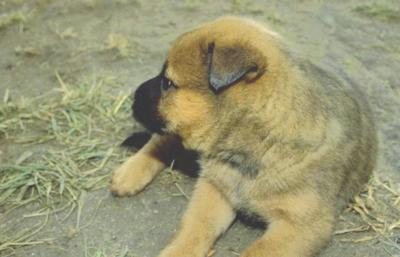Caring for the Creatures Among Us
It was a wrenching moment, but hardly the first one I have had on this issue.
One of my morning newspapers carried a front page close-up last week of the face of a precious but sad-looking bulldog puppy with a black spot over one eye and a white one over the other. The image was captured during a raid of a Stokes County puppy mill from which about 160 puppies and dogs were rescued from crowded and filthy cages. A tour of other such photos on the newspaper’s website showed appalling conditions at this particular puppy mill, so if you are squeamish, you may want to skip over this part.
Animals who have had no veterinary care in their entire lives.

Animals who have been blinded by untreated eye infections.
Animals whose legs have become deformed from living in cages too small for their size.
Animals with mice in their cages.
Animals who cannot take a step without walking on their own urine and feces. Their coats are matted with their own waste.
Animals with wires sticking into their cages.
And the list goes on and on…
The newspaper quotes Phil Handy, Stokes County’s animal control director, as saying, “I’m relieved we were able to come to the aid of these dogs.”
In fairness, this particular puppy mill, Dan River Bullies, just north of Winston Salem, is hardly the only one in North Carolina, and is probably not the worst. Several hundred dogs at a time have been removed from other puppy mills in our state, and animal organizations say they have identified puppy mills in the rural areas of Cumberland County. Rural areas are attractive to such operations because they limit exposure from the public and from law enforcement authorities.
So what is a puppy mill?
It is a dog breeding facility where dogs are bred for profit and where overhead —food, cleanliness, living conditions and health care—are secondary to making money. Dogs bred — often in such facilities — are sold to an unsuspecting public over the Internet and sometimes in pet stores. The buyers have no clue they are getting dogs bred in such conditions. These dogs often have illnesses, serious medical and/or behavioral problems.
The bottom line for a puppy mill is that profit comes before the well-being of the animals.
The first time I ever heard of a puppy mill was in 2009 when I was serving in the North Carolina General Assembly. Legislation was being proposed that commercial dog breeders with more animals than could be pets would merely register with the state so that there would be a record of who and where they were. Breeders of dogs used in medical facilities and in pet stores already register. Most other small businesses register with the state by incorporating, so why should dog breeders be any different? It sounded like such a good idea to me that I signed on and became a sponsor of this legislation, which meant I advocated for it with my House and Senate colleagues.
Then came one of the most astounding and baffling political firestorms I have ever seen.
The simple notion that commercial dog breeders should register with the state like any other commercial enterprise brought down the wrath of our state’s powerful agricultural animal industry, primarily hog producers but some poultry producers as well. Their fear was that treating puppies humanely would somehow lead to more attention to the practices in their industries, including keeping pregnant sows in crates during the gestation process. Some even suggested that registering commercial dog breeders was the first step in making North Carolina a “vegetarian state.”
Really!
The bill passed the North Carolina Senate, but the House succumbed to industry pressure and the bill died. Puppy mills continue to operate, as the raid on Dan River Bullies graphically and sadly illustrates.
If you are looking for a pet dog, good for you! My dogs, and there have been many, continue to enrich my life.
A reputable and caring dog breeder will welcome you into his facility, so ask to see it. If someone offering to sell you a dog defers about an on-site visit with excuses like it is too “inconveniently located” or “I am in your neighborhood right now,” or asks to meet you in a parking lot, say “No!” and run for the hills. That soft and fluffy bundle of sheer puppy joy he is offering could come with heartache and major expenses.
Meanwhile, encourage our legislators — whoever may be elected this year — to develop some steel in their spines when the pork industry comes calling and to follow the lead of many other states in dealing with the very real and very damaging puppy mill industry.
How we treat animals bred for our pleasure, not our nourishment, tells us what kind of people we really are.
Photo: Animal organizations say they have identified puppy mills in the rural areas of Cumberland County.

 How to resolve AdBlock issue?
How to resolve AdBlock issue? 








